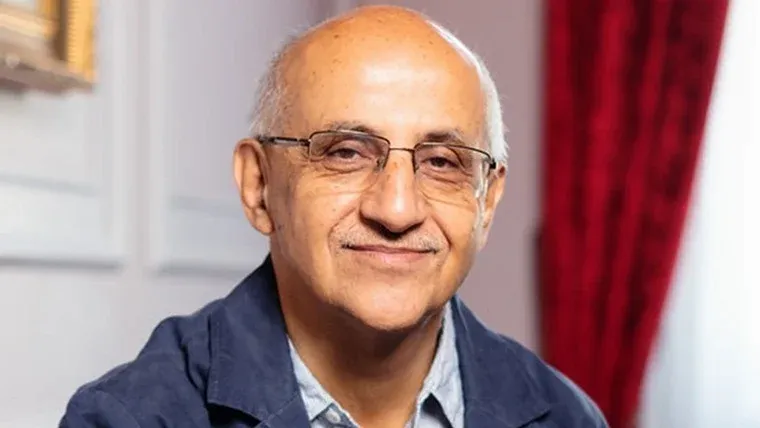India Needs a New Social Contract

- Harsh Mander
The pandemic has dramatically laid bare the catastrophic public costs of inequality. Thousands of lives could have been saved if much greater investments had been made in public health provisioning. The explosion of mass hunger and joblessness and the dislocation of millions of working poor people could have been averted had labour protection, social security, and wage levels of workers been secured.
“Inequality Kills” is the apt title of a devastating report by Oxfam India released at the time of the World Economic Forum in Davos. For India’s super-rich, the pandemic became a time to swell their wealth dizzyingly. The worst year of the pandemic for India was 2021. In this year, the net wealth of just one Indian billionaire, Gautam Adani, multiplied eight times, from $8.9 billion in 2020 to $50.5 billion in 2021. The net worth of Mukesh Ambani doubled to $85.5 billion in 2021, rocketing him from India’s to Asia’s richest man. In fact, Ambani added Rs. 90 crores to his wealth every hour right from March 2020, the start of the pandemic. In 2021, the number of dollar billionaires in India expanded by 39 per cent. India is home today to the largest number of dollar billionaires, after the US and China, with more billionaires than France, Sweden and Switzerland combined. In 2020, 98 families held more wealth than 555 million Indians. India’s top 10 per cent owned 45 per cent of the country’s wealth. Three-fifths of India’s top 100 added $1 billion or more to their wealth in 2021 over the previous year.
In this same period, as many as 84 per cent Indian households suffered a fall of income, for many, it was a fall into deep and stubborn poverty. The RBI estimated a GDP contraction of minus 8.7 to 7 per cent. 120 million jobs were lost, of which 92 million were in the informal sector. In 2021, FAO reported that there were 200 million undernourished people in India and India was home to a quarter of all undernourished people around the world. Pew estimated that the number of poor people in India doubled from 55 million in 2020 to 120 million in 2021. Oxfam reported that daily-wage workers topped the numbers of people who committed suicide in 2020, followed by self-employed and unemployed individuals.
Evaluations in the media do not adequately recognise that the greater part of the grim economic devastation that surrounds us in India today deaths, joblessness, hunger is not caused primarily by the Covid-19 virus. They are the consequence of market-led public policies that have fostered unequal life chances. This got exposed more in these times of global calamity.
Imagine a vastly different India. Imagine, for instance, a country that has secured free and quality healthcare for every citizen, a guarantee of food for all, workers’ rights to social security and wage payments to all during lockdowns, and decent housing and clean water. The deaths and unemployment that engulfed a large section of Indians could have been eschewed. If millions of working people had more money in their hands, the greatest contraction of the economy since Independence could have been forestalled. If decent social housing and clean water supply had been secured by governments for all residents, it would have enabled the millions forced into overcrowded shanties to protect themselves by keeping distance in well-ventilated tenements and washing their hands regularly. Millennials might then argue: All of this is unattainable; what, then, is the point of painting scenarios of utopias?
But just as the humanitarian crisis today could have been prevented, the alternative is eminently feasible if people and government commit themselves to the goals of the Constitution. India spends only 3.54 per cent of its budgetary resources on healthcare, much less, as noted by Oxfam, than other middle-income countries like Brazil (9.51), South Africa (8.25) and China (5.35). Income inequalities reduce life chances in India even more for those disadvantaged by caste, gender and religious identities. A Dalit woman, for instance, has 15 years lower life expectancy than an upper-caste woman. Confronted by a broken and starved public health system, even the poor have to rely on private health providers, and 60 per cent of health spending in India is out-of-pocket, among the highest in the world, and a major cause of poverty. In the pandemic, the exclusions were even more spectacular. Oxfam found middle-class families spending Rs. 4 lakh a day in private hospitals during the second wave something a casual worker earns in 1,000 days.
The starting point of our vision of a new India is for the state to assume responsibility to provision quality healthcare, education, food, pension, clean water and housing, free or in affordable ways for all citizens. Economist Prabhat Patnaik, in his contribution to the India Exclusion Report brought out by the Centre for Equity Studies, says that to resource all of this would demand a public resolve to expand taxation of the super-rich. Sufficient to fund all of this, he calculates, is two taxes levied only on the top 1 per cent of the population a wealth tax of 2 per cent and an inheritance tax of 33 per cent. Our government is doing the opposite; it withdrew the wealth tax in 2015 and reduced the already low levels of corporate tax. The result is regressive taxation burdening the poor and abysmally low public spending.
Those who care for a kinder world must not miss this moment when the pandemic has revealed to us the horror of our moral collapse; of economic and social arrangements that privilege some lives, but treat the rest as expendable. The struggle of our times must be for a new social contract based on solidarity and inclusion.
The writer is a Richard von Weizsacker Fellow and Chairperson of the Centre for Equity Studies Courtesy: The Indian Express







